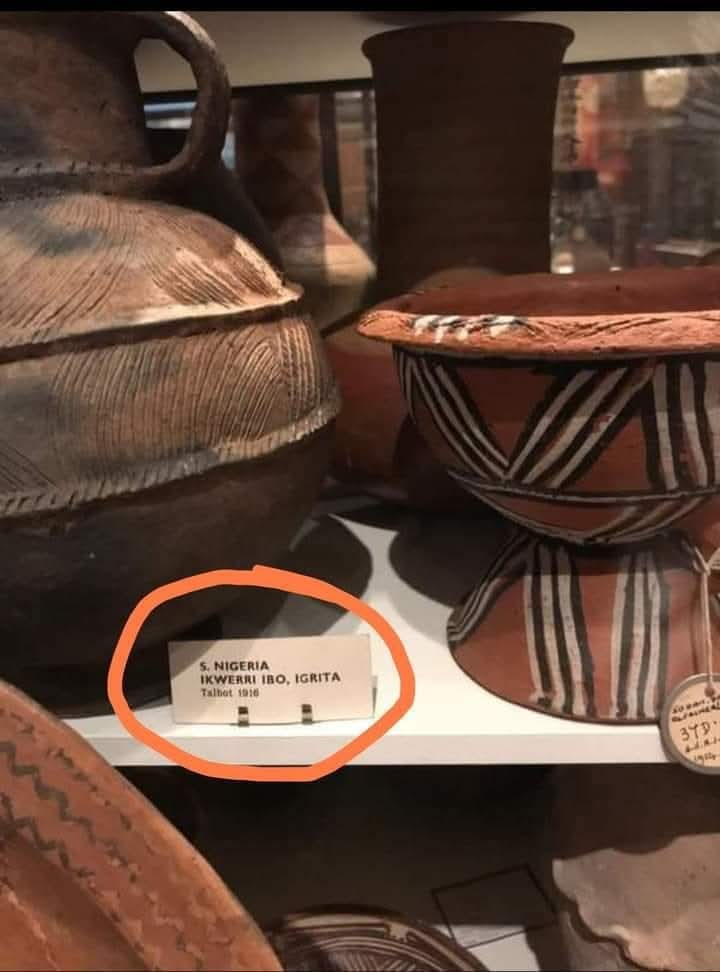Ikwerre People: Proudly Igbo, Always Igbo
In 1916, a beautifully crafted clay pot from the Ikwerre people was displayed at the Pitt Rivers Museum in the UK. It was celebrated as part of the rich cultural heritage of the Ikwerre, a proud Igbo-speaking community. That pot, believed to have originated from Igwurita (Igrita) in present-day Rivers State, serves as a reminder of the deep history and identity of the Ikwerre people within the Igbo nation.
Yet, over time, some Ikwerre people have distanced themselves from their Igbo roots, often claiming they are not Igbo. While they are entitled to their opinions, the facts remain unchanged. Being Igbo is not something that can be denied or undone—it is in the language we speak, the culture we practice, and the history we share. Denying these connections is like a person insisting they are not human. Such a claim does not change the reality of who they are.

Who Are the Igbo?
The Igbo nation is not defined by geography or politics but by shared language, traditions, and ancestry. Every Igbo subgroup has its own dialect—Ngwa, Nsukka, Awka , Enuani, etc and yes, Ikwerre. These dialects may vary, but they are all interconnected, with over 80% mutual intelligibility among Igbo speakers. Central Igbo was created for ease of communication, but the real essence of Igbo lies in these local dialects, including Ikwerre.
The Ikwerre people live and breathe Igbo culture. Their names are Igbo, their traditional foods are Igbo, their marriage customs are Igbo, and their kings are called “Eze,” a distinctly Igbo title. To separate Ikwerre from the Igbo is to separate a branch from its tree—an impossible task.
Why the Denial?
The roots of this denial lie in history, particularly during the Biafran War (1967–1970). During that turbulent time, efforts were made to divide the Igbo people, exploiting political and social differences to weaken the unity of the region. These tactics left scars, and some of the divisions persist to this day.
However, historical events cannot rewrite the truth. The Ikwerre, like every other Igbo subgroup, are an essential part of the Igbo nation. The population of the Igbo people, estimated at nearly 80 million, is made up of many subgroups like the Ngwa, Nri, and Ikwerre. Each subgroup has its own sociocultural organization—such as Ogbakor Ikwerre for the Ikwerre people—but all fall under the umbrella of Ohanaeze Ndigbo, the apex body that represents the Igbo globally.
The Truth Will Always Stand
For those who claim the Ikwerre are not Igbo, the truth is simple: you cannot change what you are. A son may disown his father, but that does not erase their blood ties. The Ikwerre people are Igbo because that is their heritage, their language, and their culture. No amount of denial can change that.
The Ikwerre are a vital part of the Igbo story—a story of resilience, unity, and greatness. Instead of clinging to divisions created by history, it is time to embrace our shared identity and celebrate what makes us one.
The Ikwerre are Igbo, not because someone is forcing them to be, but because that is who they are. It is in their blood, their history, and their culture. And just as you cannot separate a river from its source, you cannot separate the Ikwerre from the Igbo nation. This is how God made it, and this is how it will always be.






